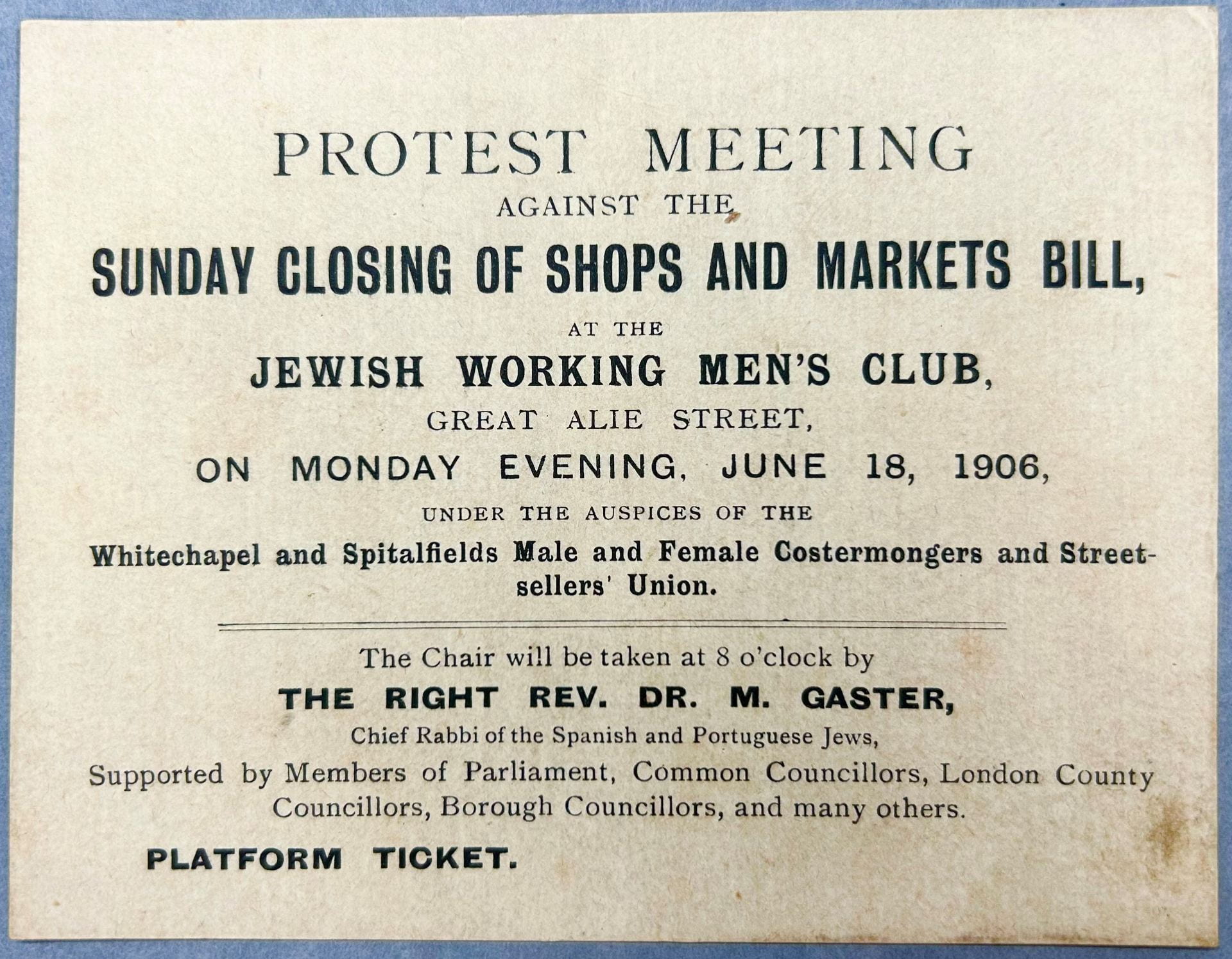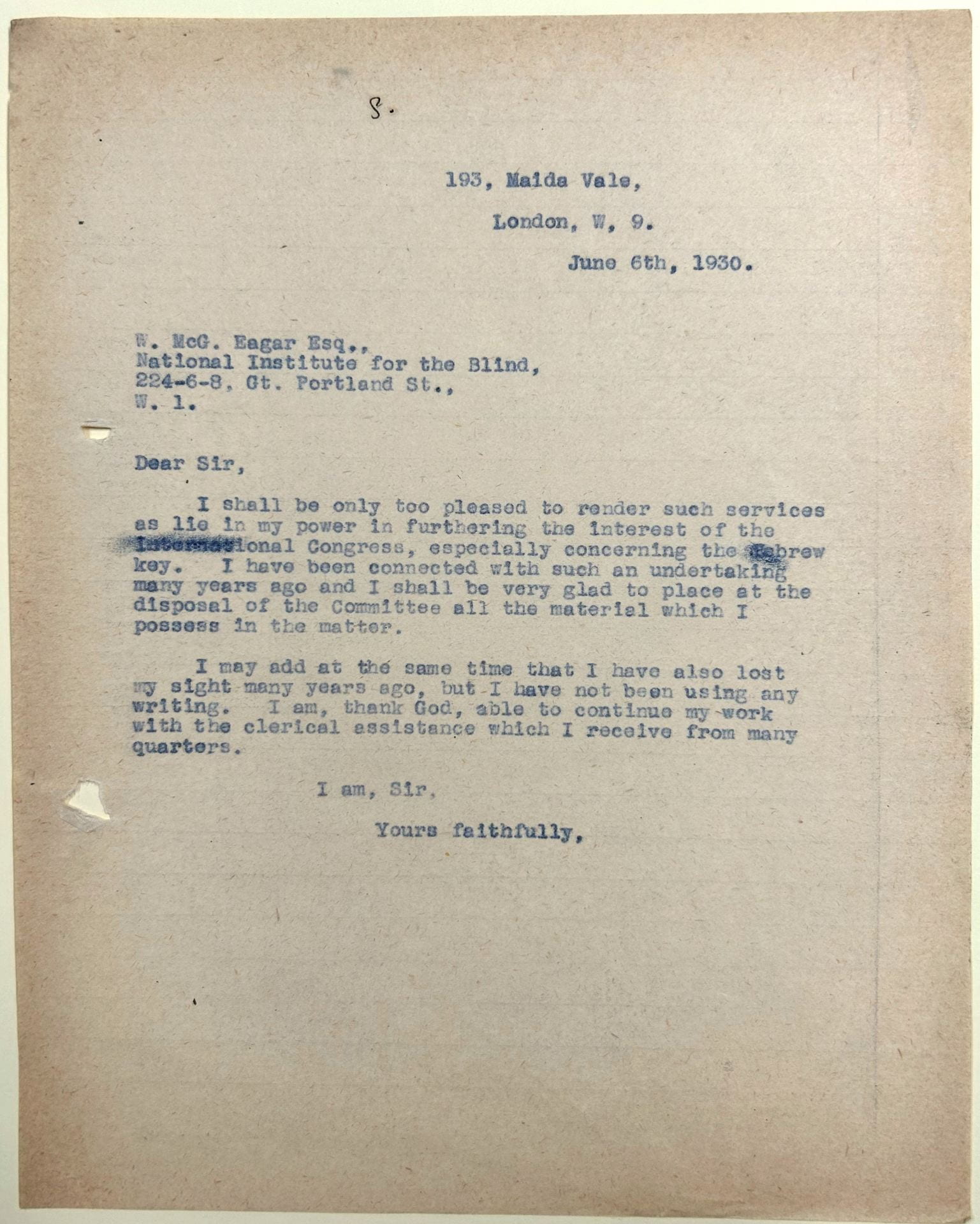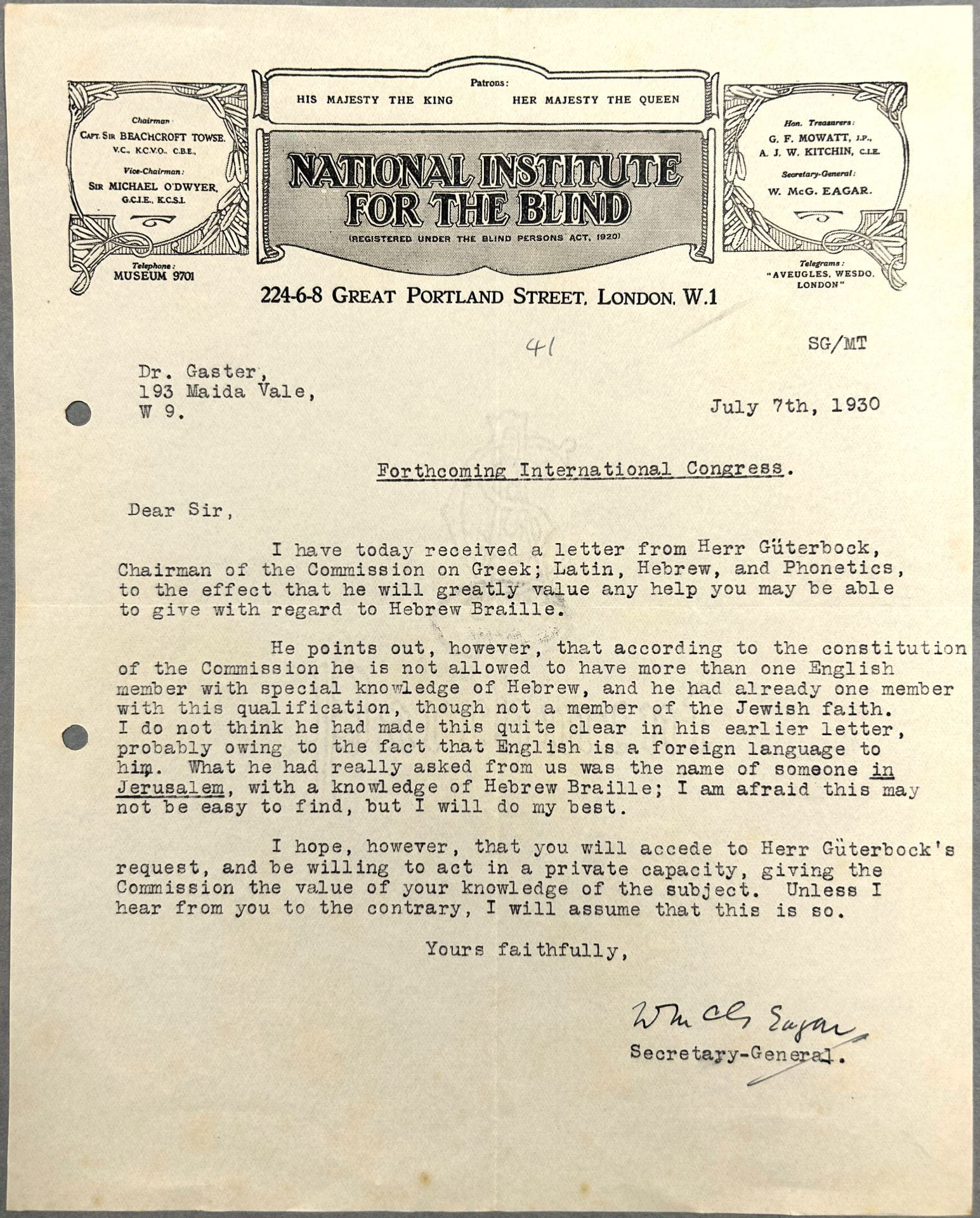Gaster Cataloguing Project: Part 1
By Katy Makin, on 20 September 2023
Deborah Fisher, Gaster Project Cataloguer, shares some of her work.
We have recently started an exciting new project to fully catalogue the archive of Rabbi Dr Moses Gaster (1856-1939) and make the collection more easily available for research. Supported by external funding, the project runs from August 2023 to March 2024, and two project cataloguers will be carrying out the work to sort, list and catalogue Gaster’s extensive correspondence.
The Gaster Papers is the largest and most significant Jewish archive collection at UCL Special Collections. The bulk of it is correspondence between Dr Gaster and a range of individuals and organisations across the Jewish and wider community. It includes both incoming letters and copies of outgoing ones, and comprises around 50 linear metres of material.
Gaster was a Jewish communal leader, prominent Zionist and prolific scholar of Romanian literature, folklore, and Samaritan history and literature, as well as Jewish subjects. Born in Bucharest, he was expelled from Romania in 1885 because of his political activities. He settled in Britain and was appointed Haham (spiritual head) of the Spanish and Portuguese Jewish community, and later also Principal of the Judith Lady Montefiore College in Ramsgate. He was a founder and president of the English Zionist Federation and played an important role in the talks resulting in the Balfour Declaration of 1917.
The archive also has wider significance beyond Moses Gaster himself and is an important resource for research into late 19th and early 20th century history, both within and beyond the Anglo-Jewish community. Gaster corresponded with a huge range of individuals and organisations: a biographical index of Gaster’s well-known correspondents for the period 1870-1897 includes nearly 400 names, including rabbis; Jewish, Christian and secular scholars; politicians; financiers; doctors and even royalty. He received correspondence from Britain, Europe, America, the Middle East, India, South Africa and Australia.
Letters from the archive
The letters received by Gaster cover a broad range of topics, such as aspects of Jewish law and religious practice, charity appeals on behalf of individuals and organisations, and meetings attended or publications produced by Gaster for various societies including the Royal Asiatic Society, Society of Biblical Archaeology, and Folklore Society.
The samples below reflect the diverse nature of the correspondence, providing a glimpse into Gaster’s daily life and the tasks and responsibilities he undertook.
Shopkeepers and Businesses
In a letter dated 28 August 1896, Gaster is invited to attend a meeting in support of the Jewish Master Bakers. The Sunday Observance Laws and the Bread Acts of 1822 and 1836 prohibited bakers from baking on Sundays due to the Christian Sabbath, but as Jewish bakers were also unable to bake and sell bread on Saturdays (the Jewish Sabbath), they would only have stale bread to sell during the limited trading hours on Sunday as well as on Monday morning. Many Jewish bakers did bake and sell fresh bread on Sundays in violation of these laws; this met with opposition from Christian bakers, who felt that it gave the Jewish bakers a competitive advantage. This tension led to Christian bakers reporting these Jewish bakers to the authorities, so that they would be prosecuted and fined. The letter below, written on behalf of the Jewish Master Bakers, invites Gaster to a meeting to discuss the matter.

UCL Special Collections, Gaster Archive, GASTER/9/1
The restrictions on Sunday trading also affected other Jewish shopkeepers. The Gaster ephemera collection contains a flyer for a protest meeting against the “Sunday Closing of Shops and Markets Bill” in June 1906, at which Gaster was Chair.

UCL Special Collections, Gaster Archive, GASTER/1/A/2/701
Hebrew Braille
Gaster was a highly respected scholar and linguist, and as such was asked by the National Institute for the Blind in June 1930 to serve on a commission for the development of a standardised Hebrew Braille code, to replace the regional variations already in existence. Furthermore, Gaster himself had lost his sight by this time, and so it may have been considered a matter of personal interest to him.

UCL Special Collections, Gaster Archive, GASTER/9/1
Gaster responded that he would be willing to participate in this work, and that he had previously been involved in the preparation of an alternative writing system for Hebrew for blind users, albeit different from Braille.

UCL Special Collections, Gaster Archive, GASTER/9/1.
Ultimately, Gaster does not appear to have been directly involved in the work of the Commission; it emerged that there could only be one English member of the Commission with knowledge of Hebrew, and that position had already been filled. But the National Institute for the Blind did continue to seek Gaster’s advice on the subject in a private capacity, as the letter below shows.

UCL Special Collections, Gaster Archive, GASTER/9/1
A broader discussion of the history of Hebrew Braille is found in the American Jewish Archives: https://sites.americanjewisharchives.org/journal/index.php?y=1969&v=21&n=2
Blog post by Deborah Fisher, Gaster Project Cataloguer, UCL Special Collections.
Our next blog post later this week will continue to explore the Gaster archive, with an article by Gaster Project Cataloguer, Israel Sandman.
One Response to “Gaster Cataloguing Project: Part 1”
- 1
 Close
Close



Hi all! Lovely! I do not remember Gaster ever described as Rabbi Doctor– seemingly a bit of a neologism in the English speaking world. Am I incorrect??